Sadiq Khan’s plan to increase the congestion charge in London – and rope in the capital’s electric car owners and new residents – will cost motorists £80million a year.
From January, drivers looking to drive into the charging area – which runs from Mayfair to Tower Bridge east to west and from Euston Road in the north to Vauxhall in the south – will pay £18 a day, up from £15.
And for the first time, electric vehicle (EV) owners will be liable to pay the fee for entering the zone – with what looks to be a meagre 25 per cent discount.
Transport for London now admits that the changes to the charge – the first since 2020 – will likely generate an extra £80million a year.
Mr Khan, who is chair of TfL, is now facing accusations of trying to bleed drivers dry – and comes at a time when electric vehicle uptake is below the Government target, and needs all the help it can get.
But business leaders have also sounded the alarm over the fact that tradespeople are bearing the brunt of the new changes, which are set to take effect from 2026.
Electric vans and lorries used by tradespeople and delivery firms will also be liable for the congestion charge, albeit at a 50 per cent reduced cost.
Tiny electric city cruisers like the Citroen Ami – a favourite of estate agents – will also be liable for a half-price charge despite being a fraction of the size of a normal car.
Petrol-powered motor tricycles and motorbikes – including the mopeds used by the capital’s army of delivery drivers – will remain exempt, however.
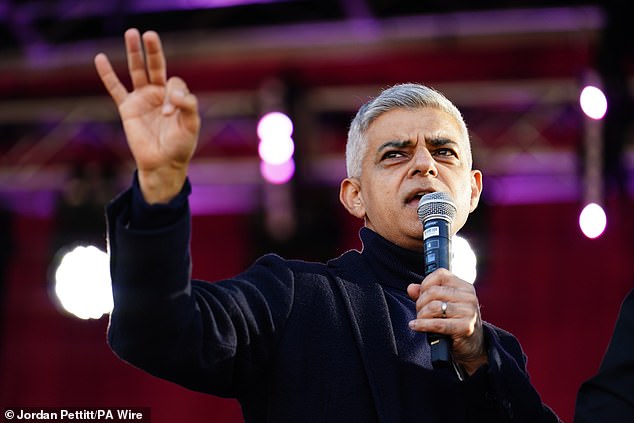
Sadiq Khan’s proposed changes to the congestion charge will cost Londoners an extra £80million a year on average, Transport for London has admitted
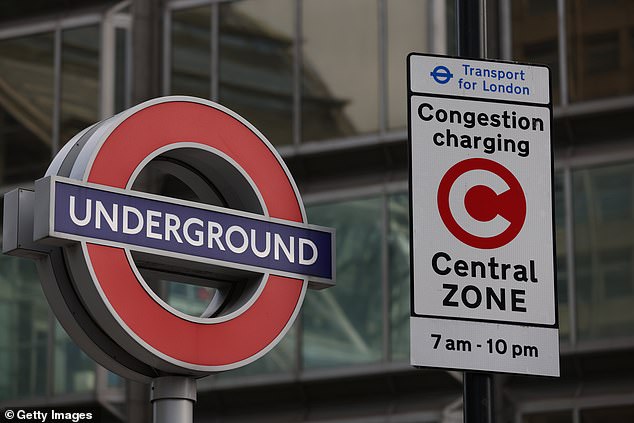
The daily price will rise from £15 to £18 – equivalent to £759 a year for someone driving in for work every day
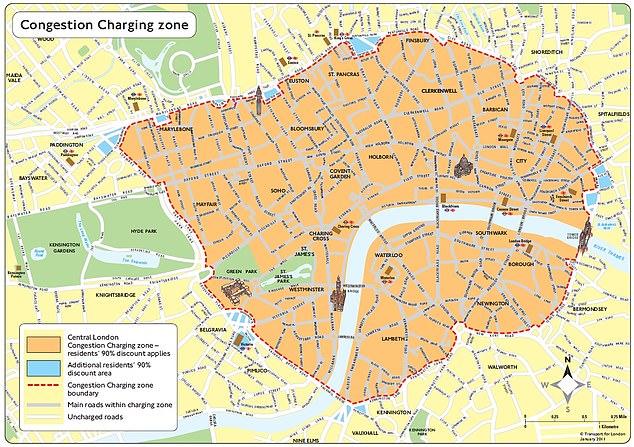
The Zone covers approximately the area from Kings Cross in the north to Vauxhall in the south, and Paddington in the west to Whitechapel in the east. It was introduced in 2003 by Ken Livingstone
And from March 2027, anyone moving into the charging zone with a non-electric car will find themselves paying the full amount to drive in their own neighbourhood.
Keith Prince AM, transport spokesman for City Hall Conservatives, said: ‘The Mayor insists that EVs are the future, but is planning to gut the incentive for most people to make the transition with these proposals, pulling the rug from under drivers.
‘To then penalise residents for not adopting EVs is not only wilfully inconsistent, but also shows the lengths the Mayor is prepared to go to in order to bleed Londoners dry, just for the sake of their cash.’
In the last two years, the Mayor has overseen the expansion of the capital’s Ultra Low Emission Zone (ULEZ) – prompting protests and widespread vandalism of cameras – and imposed tolls in the Silvertown and Blackwall tunnels, charging car drivers £4 at peak times.
The former brought in £226million of revenue in its first year, while the latter is thought to have scared off some 5,000 drivers, per TfL statistics.
Under the new regime, the cost of driving an older car in the capital would be an eye-watering £30.50 a day. Someone driving into the capital for 253 days each year – the average number of annual work days – would pay £759 more than in 2025.
TfL’s internal projections suggest that removing the EV exemption will generate up to £75million more a year. If electric vehicles do not receive the proposed 25 and 50 per cent reductions, that could rise to a staggering £83million annually.
The 20 per cent hike will add an additional £40-£50m to the body’s coffers over the next five years – as TfL is also scheming to hike the charge annually from now on.
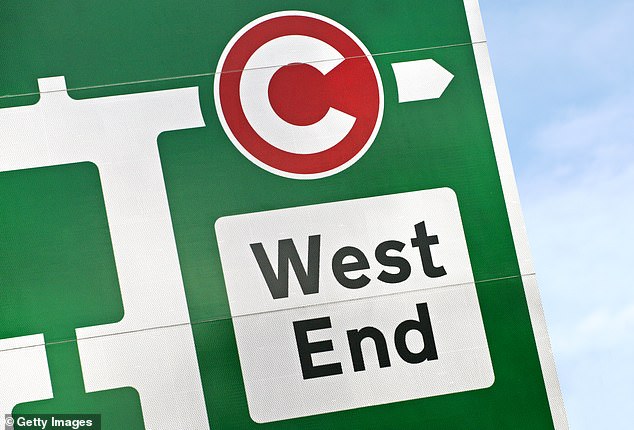
The charge runs from Mayfair to Tower Bridge east to west and from Euston Road in the north to Vauxhall in the south (pictured: a sign marking the start of the zone)
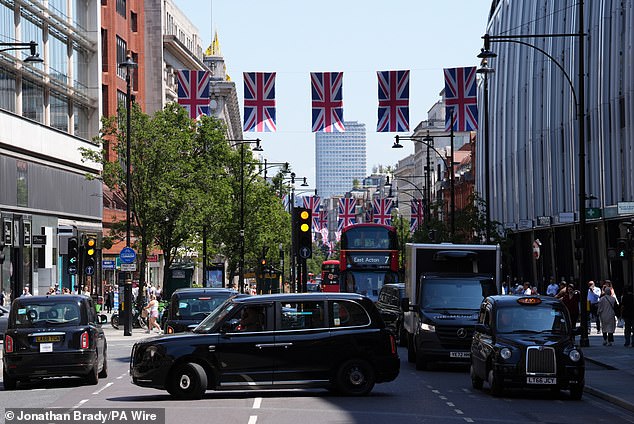
TfL says that congestion in central London would grow by 2,200 cars a day if it did not impose higher charges (pictured: vehicles in Oxford Street)
As a whole, City Hall’s coffers will grow by around £80million each year with the changes to the congestion scheme – all in the name of getting people to ditch their cars and squeeze onto the capital’s overheating trains, Tubes and buses.
The figures were first reported by Auto Express magazine, which obtained the data following a Freedom of Information request to TfL.
An AA spokesman told the publication it was ‘bitterly disappointed that TfL is now picking on EV drivers’, particularly at a time when the Government is trying to encourage anxious Brits into making the switch to electric.
They added: ‘(The) incentive to get more people into zero emissions vehicles has now been swallowed up in a general cash grab.’
TfL claims – referencing an Inrix report published earlier this year – that congestion cost the capital £3.85billion, with drivers crawling in traffic for 101 hours each year.
But business owners have said the charges will ultimately have to be passed on to customers – with others suggesting they could give London a miss altogether instead.
Samuel Mather-Holgate, of Swindon-based Mather and Murray Financial, told the Daily Mail: ‘We see clients in the capital on a regular basis and the only way to realistically do this is drive.
‘Our railways are creaking at the seams and paying top dollar for a standing room only train from Paddington is not value for money.
‘Increasing the congestion charge is going to keep people out of London – not drive people on to public transport.’
David Tucker, boss of a recycling firm with 55 trucks travelling through the charging zone, told the Telegraph ULEZ and the congestion charge already cost his firm £300,000 a year.
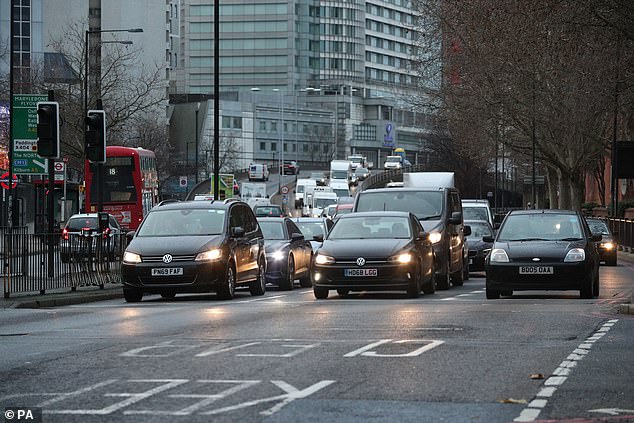
Firms have warned that their costs will rise due to the extra charges – passing them onto customers or potentially going out of business
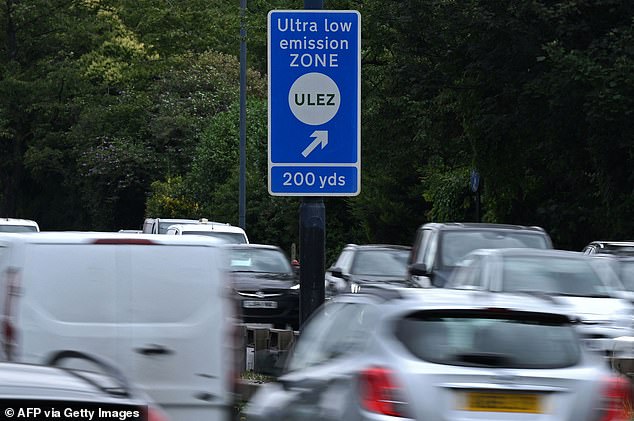
Mr Khan has already overseen the expansion of London’s much-derided ULEZ and tolls in the Blackwall and new Silvertown tunnels
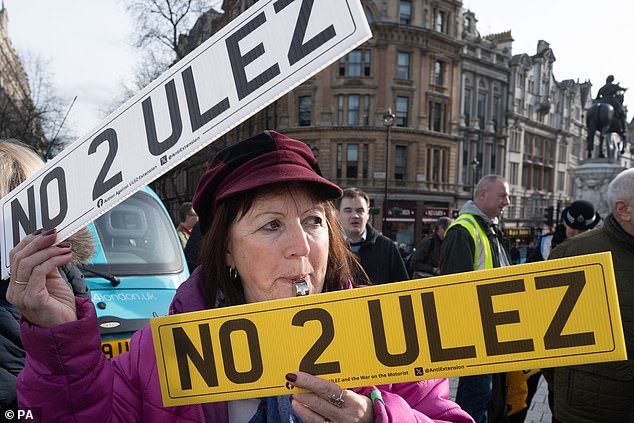
The ULEZ expansion led to a wave of protests from outer Londoners who accused the Mayor of a cash grab
He added: ‘We already had to buy new trucks at massive, massive costs. It’s no picnic, this business. It’s very unfair. TfL, they are absolutely destroying London.’
Transport for London is set to make more from drivers from March 2027 – when anyone moving into the charging zone with a non-electric car will no longer be eligible for the 90 per cent discount offered to local residents.
TfL launched its consultation on the changes in May this year. It is now closed, with the transport body still finalising its planned changes to the congestion charge.
A spokesperson said failing to update the congestion charging scheme would see an extra 2,200 cars in London every day.
They added: ‘Under these proposals, we are also proposing a new cleaner vehicle discount for those who do need to drive in the zone so they would still be able to benefit from a discount if they drive an electric vehicle.
‘(There is) a greater reduction for journeys that are harder to switch to walking, cycling and public transport, such as those made by vans for commercial purposes.
‘Central London is one of the best-connected places in the world with high quality sustainable transport options.’
It was contacted for further comment.












